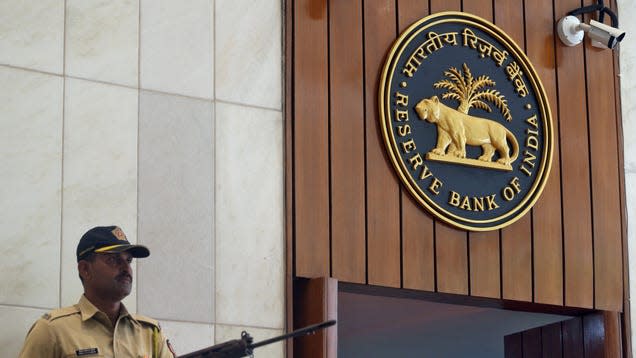India has readied its digital rupee for retail use

A month after India’s central bank launched its digital rupee for the “wholesale segment,” it is all set to pilot its retail version from tomorrow (Dec. 1).
Users can now make central bank digital currency (CBDC), or e-rupee, payments to another person or merchant through a digital wallet offered by participating banks and stored on mobile phones. Payments to merchants can be made using QR codes, just like Unified Payments Interface (UPI) transactions.
Read more
UPI transactions are backed by physical currency. This means the payment will not go through if the user’s bank account does not have enough funds.
The e-rupee, however, can be used for digital payments in lieu of currency/cash. A person can now, therefore, hold money in e-rupees, independent of funds in cash or bank balance.
The e-rupee will be legal tender but in the form of a token in the same denominations as regular currency, the Reserve Bank of India (RBI) said in a press release yesterday (Nov. 29).
“A person transferring the digital currency must have the recipient’s public key (a sort of digital address). The transfer is made using the recipient’s private key (a unique password) along with the public one,” Quartz reported earlier.
Authorities expect CBDC to reduce the costs associated with physical cash management. A risk-free virtual currency is also likely to improve efficiency and innovation in payments and hasten the move towards a less-cash economy.
The RBI has identified eight banks, including the State Bank of India, ICICI Bank, Yes Bank, and IDFC First Bank, to implement the pilot in Mumbai, New Delhi, Bengaluru, and Bhubaneswar. It will be later extended to Ahmedabad, Gangtok, Guwahati, Hyderabad, Indore, Kochi, Lucknow, Patna, and Shimla.
When will the e-rupee go full-scale?
Earlier this month, the RBI governor Shaktikanta Das emphasized that the RBI was not in a rush for a wider rollout of the CBDC.
“There are going to be some technological challenges and process challenges. We want to iron out all those aspects and introduce it in a manner that the whole process and introduction is thereafter non-disruptive,” Das had said.
The retail launch is meant to test the robustness of the entire process of digital rupee creation, distribution, and retail usage in real-time, according to the RBI.
“Different features and applications of the digital rupee token and architecture will be tested in future pilots, based on the learnings from this pilot,” its statement said yesterday.
The pilot was, till now, limited to the wholesale segment or settlement of secondary market transactions in government securities.
Since the launch on Nov. 1, a total of 807 deals worth 7,140 crore rupees ($876 million) have been executed through CBDC, data from the Clearing Corporation of India showed. By the time of publishing this report, 28 trades worth Rs295 crore were struck today (Nov. 30).
More from Quartz
Sign up for Quartz's Newsletter. For the latest news, Facebook, Twitter and Instagram.

